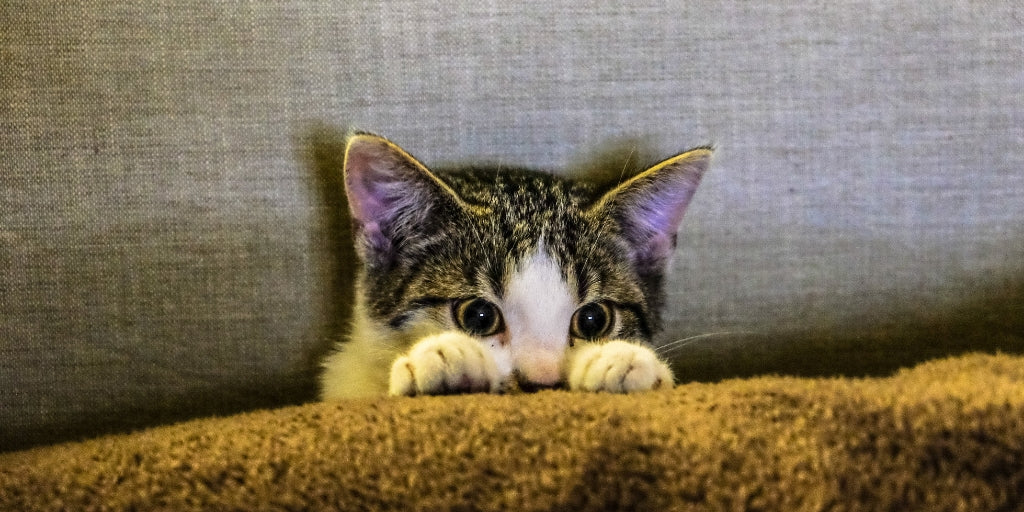Preventing Pet Poisoning: A Guide

As pet parents, we often tell people that our pets are our children. When we bring a pet home, they quickly graduate from a household pet to a member of the family. This means that as a responsible pet parent, we often have to make adjustments to our homes to make them suitable for our furry kids. Potential toxins and poisonous substances may be more prevalent in your household than you may think. Knowing what these are and how to keep them out of reach of your pets could mean the difference between a Sunday trip to the dog park, or an emergency visit to the vet.
Here are some guidelines to poisonous substances and what to do if you suspect your pet may have ingested a toxin.
Canine Toxins
- Grapes/Raisins. Veterinarians haven't determined the exact science behind it, but grapes and/or raisins can cause kidney failure in some dogs.
- Xylitol. An ingredient often used in sugar-free candy or gum, this ingredient can cause low blood sugar and liver failure
- Any medication, including over the counter drugs. While it may seem obvious to keep your dog from your heart medication, keep in mind that some pet prescriptions are designed to be palatable and often smell very enticing. Make sure your pet's own medications are also out of reach to prevent any accidental overdosing.
- Rodenticides. This is one of the most common types of pet poisoning. Pets are often asymptomatic after ingesting rat poison, but if you suspect your pet may have ingested any, it is important to call your vet or poison helpline as soon as possible.
- Caffeine. Dogs aren't designed to tolerate caffeine, but it is present in soda, tea, coffee, energy drinks, and supplements. Depending on the amount ingested, the risk can range from mild side effects to potentially life-threatening.
- Insecticides. Like rodenticides, insecticides are chemical-based products that can cause severe illness if ingested.
- Ice melt. In winter, road and sidewalk salt are hard to avoid. Yet ice melt products are often composed of chemicals that can irritate your dog's paws. Consequently, your dog may lick at his paws to relieve himself and accidentally ingest the harmful chemicals. There are pet-safe alternatives for ice melt you may opt to use, and be sure to properly store your bags to prevent exposure.
- Chocolate. A common household item, chocolate toxicity in dogs is one of the most common reasons for a trip to the ER vet. Be sure to keep that sweet stuff high out of reach!
- Household cleaners. While most dogs will turn up their nose at household cleaners, these should be properly stored and secured to prevent any accidents, as ingestion could cause severe illness.
- Onions/shallots/garlic. Any plant in the allium family has the potential to cause anemia and severe gastric upset. If your pup is the kind that will eat anything, be sure to keep these ingredients out of his diet.
Feline Toxins
- Lilies and other toxic plants. Poisonous household plants are the most common toxin ingestion for our feline children. Since many cats love to chew on plants, be sure the plants you are bringing into your home are non-toxic or otherwise out of reach. Even small amounts of ingested lily pollen can cause kidney failure.
- String/sewing supplies. While not toxic per say, many cats love to play with yarn, string, and shiny little objects and accidental ingestion does sometimes happen. Keep these dangerous toys out of reach while not under supervision.
- Medications. Medications, both prescription and OTC drugs like aspirin, can have lethal consequences for cats. In order to keep curiosity from killing the cat, make sure all medications are secure and inaccessible to your pet.
- Household cleaners/chemicals. Many household cleaners don't necessarily have to be ingested to affect the health of your feline companion. Using harsh chemicals, scented cleaning products, and even some essential oils can induce respiratory difficulties. Accidental ingestion can result in more severe illness. When possible, keep your cat away from the areas you are cleaning and wipe away any residual cleaner. If you suspect your cat may have been exposed, contact your local veterinarian or poison helpline.
If You Suspect Your Pet Is Poisoned...
Symptoms for poisoning can vary and in some cases, may not present until days after the initial ingestion. Common symptoms include drooling, vomiting, diarrhea, lack of appetite, lethargy, pale gums, and in severe cases, collapse. If you suspect your pet may have ingested a toxic substance, it is important to seek help as soon as possible. The Pet Poison Helpline is an enterprise of certified poison experts who can help to identify symptoms of poisoning, as well as determine when veterinarian treatment is necessary. Your pet's age, health, and size will be important factors in determining whether or not treatment is necessary.
Do not induce vomiting at home without consulting a professional first - depending on the substance involved, this can be contraindicated and even detrimental to your pet's health. If veterinary care is warranted, the pet poison professional can contact your veterinarian to discuss treatment plans and develop a course of action appropriate for your pet.
Pet safety is an important part of being a pet owner. Securing medications, using pet-friendly alternatives to cleaning products and chemicals, and checking the toxicity status of houseplants are all simple, but effective ways to avoid accidental pet poisoning. After all, we childproof our homes...how are our pets any different?
- Choice Pet Admin
